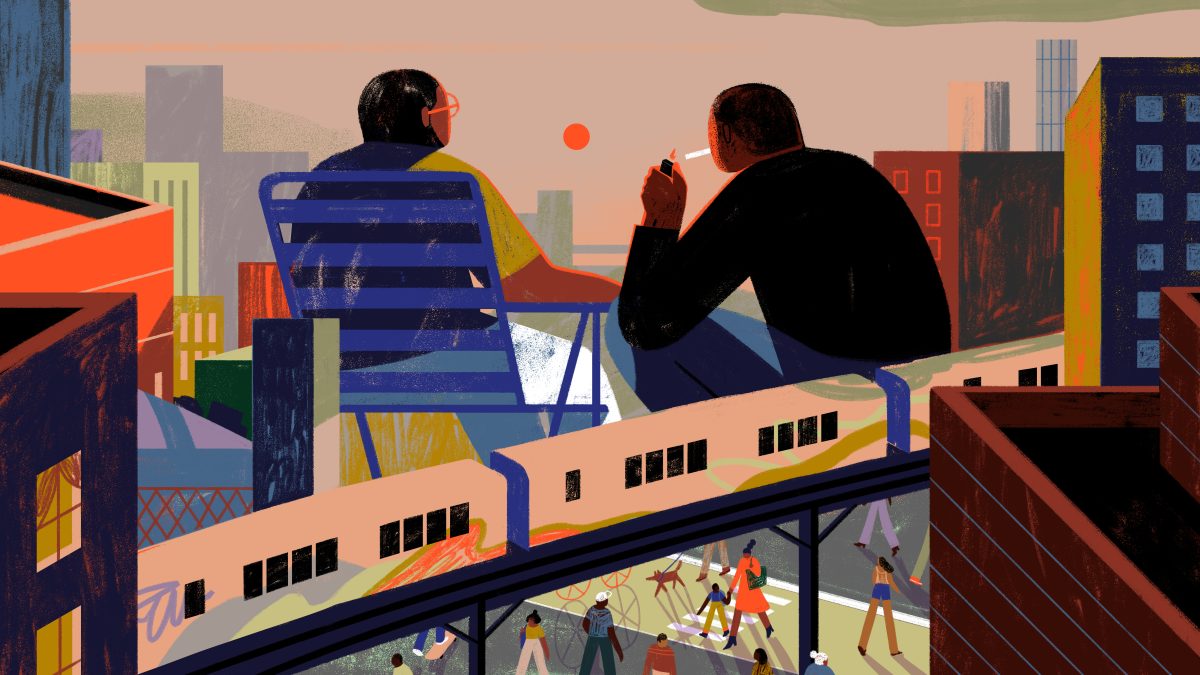Fiction Flash
Si Dios Quiere
Raul returns the greeting, always the same: by running his pointer finger over his throat in disapproval.
On the intersection of Jerome and Gun Hill, in front of the Habibi bodega, Raul props open his beach chair. He slowly lowers his body, bending carefully at the knees, until he is sitting.
Although he knows he won’t play, Raul shows up Monday through Friday with his left front pocket filled with a deck of cards, like he did back at the colmadón in La Vega. The sun fires up his deteriorating black 557 New Balances. He does not remember how he acquired them, but unless he thought intentionally about anything, he would not remember much before these shoes.
It wasn’t that Raul didn’t have the means to go back home—to sit at the colmadón and recreate the moments he once took for granted. It was that no one was left. The last time he asked his grandson to purchase his flight he packed his bags with razors, soap bars, and camisas to give out to his friends. The ones he never called, but he felt them resting in his hands like the calluses that had grown permanent from their days working in la loma together. When he arrived, he found most had died and the only one left was blind and deaf. He visited this man, had him feel his calluses, tried to see if it would ring a bell, but there was nothing. After that, Raul told his wife he’d rather save el chin de dinero de el social security. Leave a little something for his children. The last time the Dominican Republic would see him would be in a casket.
The Bronx had become a home. And as many times as his descendants encouraged him to enjoy his last years on the island, Nueva York was the place that kept him alive. From this place he had gotten dialysis and bought some time. And now when he had nothing left of the community that he was forced to leave behind when his diabetes attacked his kidney, it gave him something else to get used to. From the beach chair, everything was a routine. The early morning filled with construction workers, school buses, and tired children. The early afternoon with addicts straddling a high, mothers running errands, and hospital workers looking for anything to satiate their hunger. The late afternoon held the freedom of teenagers, and the evening was simple with waste and grit.
Good morning, Habibi, Amr, the Yemeni store owner, says. He squats besides Raul, and pulls out a Marlboro. Raul returns the greeting, always the same: by running his pointer finger over his throat in disapproval. Amr smirks, lighting up his cigarette. Amr has always been curious about the life of this old man. He knew nothing about him other than Raul had taken to converting the storefront into his living room. After a few quiet drags, Amr takes out his phone and flips to a picture of his wife. When he received it in an email from his sister, his chest contracted.
Mira, Amr says. It’s one of the only words he has memorized in Spanish. When he had come to the states, he swore it was English he’d have to learn. It was only after opening up the shop that he quickly learned Spanish was what he’d have to get comfortable with. He gives his phone to Raul and points at his ring.
Que bonita, Raul says, kissing the cluster of the tips of his fingers. ¿Y donde ’ta? He twirls his wrist, his pointer finger at an angle, his hand becomes a question.
Yemen, Amr says as he points to the sky.
Traítela pa’ca, Raul says. He motions his hand from the sky to his heart.
Inshallah, Amr says. He brings his palms together to the center of his crown.
Si Dios quiere. Raul quickly bows his head.
Si Dios quiere.
